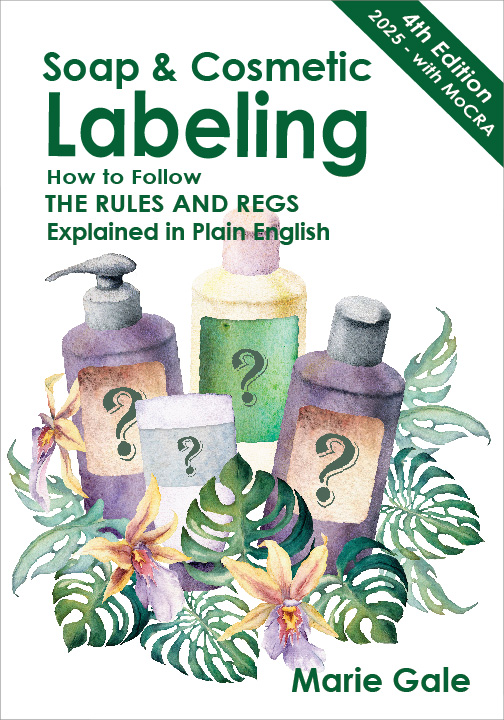“Americans spend a lot of money on creams, lotions and other cosmetics that promise to improve their skin, hair and even eyelashes.
“But sometimes those promises go too far.”
FDA Website
So says a new page on the FDA website intended for consumers, to inform them of the differences between drugs and cosmetics. In my opinion, they’re right.
There are many companies and cosmetic makers that go WAAAAY too far in what they claim for their products. Even Linda M. Katz, MD, director of the FDA Office of Cosmetics and Colors acknowledges that:
“You walk into a store and see shelves of wonder products. If they’re going to be making drug claims, the products need to be evaluated as drugs.”
Linda M. Katz, MD, Director of the FDA Office of Cosmetics and Colors
FDA Warning Letters
Is anything being done about it? Well, the FDA does issue warning letters when cosmetic companies cross the line. Even the “big guys” sometimes get a little too agressive in their marketing. L’Oreal recently received a warning letter that cited claims such as:
- “Localized Redness Intensive Serum”
- “RECOMMENDED FOR: Redness-prone skin, experiencing overall redness, flushing and sensations of discomfort”
- “Reduces visible redness and sensations of discomfort”
- “I have rosacea on my neck when I get warm or under stress. This product really works to keep it under control!!!”
But, as Ms. Katz says, the shelves in Wal-Mart, Walgreens, Target, Macy’s, and other stores are filled with products that claim that you can be healthy, beautiful, and younger1 by applying their cream or lotion daily.
I expect there just aren’t enough FDA inspectors to check everything. Many of them are too busy with pathogen-containing foods, muscle-building supplements that contain steroids2 and herbal supplements to “improve virility” that actually contain prescription drugs.3
Personally, I appreciate their actions to keep food safe and prescription drugs out of “dietary supplements.”
What About Handcrafters?
I admit, for handcrafters who are making small batches of cosmetics and can custom blend ingredients which may have physiologial benefits (which would be considered drug claims) it’s hard to wrap your wits around the fact that you just can’t claim that your product will do anything other than 1) cleanse, 2) enhance beauty, or 3) promote attractiveness.
If you made a wonder product that cured your childs’ eczema or disinfected the air so your family didn’t come down with the flu, good for you! Just remember that you’ve made drugs and you can’t sell them without the long, involved, and costly process of proving it scientifically with proper studies, double-blind tests, and such like.
What Can You Do?
What you can do, legally and without any prior approval from the FDA or anyone else is make safe and high-quality, wonderful, good-smelling, skin-friendly cosmetics and soaps.4
Handcrafters can make soap and cosmetic products that are light-years better than nearly all commercial products—without making a single claim that the product will treat, cure, prevent or mitigate a disease, or alter the function or structure of the body.
Go forth and make soaps and cosmetics—and not drugs!
More Info
For more information on the differences between drugs and cosmetics and some of the pertinent laws and regulations, see Chaper 1, “Who Makes the Rules?” in Soap and Cosmetic Labeling (3rd ed) which you can get from Amazon using the button below. There is also a lot of excellent information on the FDA website.

Shameless plug!
To really be able to create your own labels that comply with the regulations, get my book from Amazon and use it.
4th Edition – Released March 5, 2025!!!
Or order directly from me (and get a signed copy)!
- I do have to admit that I would like to find a cream or lotion that actually makes me younger! ↩︎
- FDA Warning Letter to A2Z Industries, Feburary 9, 2015 ↩︎
- FDA Warning Letter to Shoreside Enterprises, December 23, 2014, citing that their product actually contained sildenafil and tadalfil, which are active pharmaceutical ingredients in Viagra and Cialis respectively, and dapoxetine which is an SSRI for premature ejaculation. ↩︎
- If you live in Florida or a couple of other states there are some state-level requirements for the manufacture of cosmetics, including soap as a cosmetic, but generally not for soap that only claims to clean. ↩︎


Leave a Reply